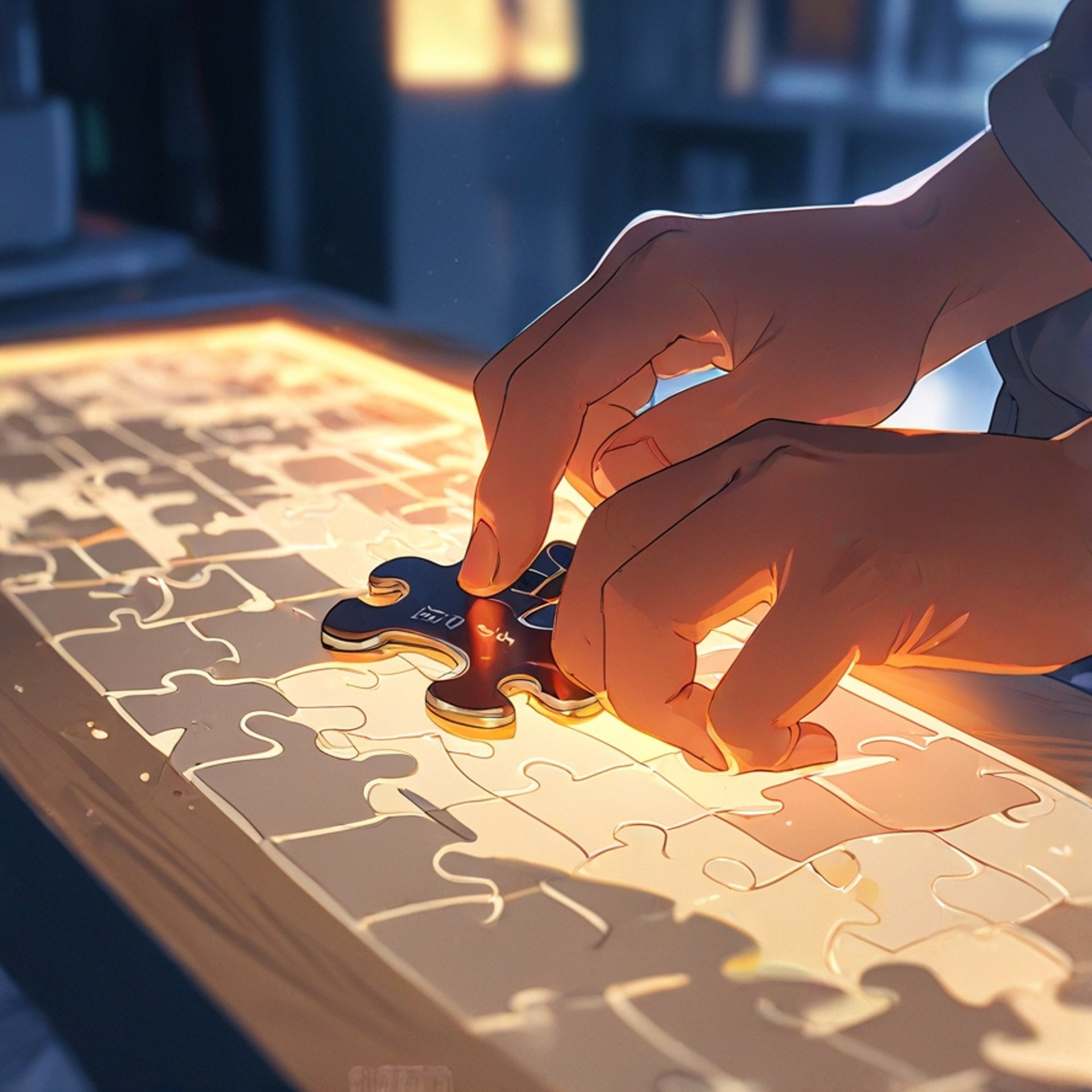Too Old, Too Fast | For anyone who feels like time is running out before it even started.


Heads up: a few links are affiliate links, and some include special offers you won’t want to miss.
That feeling - “I’m already too old” - hits so many people in their 20s, but almost no one talks about it honestly. It comes from the pressure to figure life out fast, to not waste time, to "succeed early", especially in a place like Singapore where achievement is stacked like a competition.
But here’s a truth worth remembering:
You're not too old. You're just too aware.
You’ve seen everyone’s highlight reels on social media. You’ve seen 21-year-olds starting companies, purchasing apartments, trading crypto, becoming influencers. And quietly, it makes you feel behind - even though there is no actual race.
Here’s a reframing:


If You Feel “Too Old” in Your 20s...
You’re not too old to start a Hustle, a Blog or a Startup.
You’re not too old to start a side hustle, a blog, or even a small online business.
I get it — scrolling through TikTok or Instagram, it feels like everyone your age is already an influencer or making money online. But here’s the truth: most successful creators didn’t get there because they were the prettiest or the trendiest. What made them stand out was their ability to be relatable. They share the kind of stories people experience but rarely say out loud, they spark conversations, and they build communities. That’s the real secret behind their long-term income.
This is why blogging is one of the best side hustles for beginners in their 20s. It’s affordable, flexible, and you don’t even need to show your face. Instead, you can focus on writing about your experiences, your thoughts, and your passions. Over time, you’ll attract like-minded readers who genuinely connect with your content. Those readers can become newsletter subscribers, loyal supporters, and even customers for years to come — something quick one-off sales rarely give you.
So, don’t let comparison stop you. There’s no perfect age or magic timeline for success. Whether you start today or next year, the outcome depends on one thing: taking action. Your journey won’t succeed because you were the youngest or the luckiest — it will succeed because you started.


You’re not too old to be lost.
If you feel lost in your 20s, it’s not because you’ve failed - it’s because you’ve just stepped out of the structure of education.
For years, school gave us a clear roadmap: assignments, grades, deadlines. You knew exactly what to aim for and how to get that “A.” But the moment you step into the real world, everything changes. There’s no syllabus.
Suddenly, you define the goals. Is an A+ equivalent to getting your boss’s approval? Hitting your sales target? Landing a promotion? Or building your own million-dollar startup?
Out here, the objectives aren’t written down - you create them yourself. And that’s both the scary part and the exciting part.
Time to Define your 'A+'
You’re not too old to change directions.
So what if one day you lose your job?
Or discover that the path you thought you wanted isn’t as fulfilling as you expected?
Congratulations - that’s life giving you a second chance to pick something new! Maybe it feels scary, maybe exciting, maybe both. The point is, there’s always an opportunity to explore something you enjoy. Tools like AI and ChatGPT can even help uncover opportunities you hadn’t considered before.
Change doesn’t mean failure. Sometimes it’s a conscious choice to pursue a new adventure - whether that’s a long-awaited trip, moving to a new city, or starting a passion project.
Embracing change brings hope; resisting it only brings frustration.
If you’re unsure where to start, take it day by day. Focus on what you can do this week - even small steps move you closer to your goals.
When you’re ready, write down a plan, knowing that it’s okay to pivot along the way.
The key is to keep moving forward: you’re never too old to start again, to redefine success, or to take control of your journey.
And In 2025 many Ways to start your own business and automate them with Artificial intelligence. to help you navigate the everchanging Ai business tools, Visit Ai Stack - THE Ultimate Ai tool Directory For starting a business!


You’re not too old to build something that takes years.
In your 20s, you still have roughly 80 years to work toward your passions. In your 30s, about 70. And if you’ve already passed your 20s, take a moment to appreciate everything you’ve accomplished — all the certifications, skills, projects, and experiences.
They’re not wasted; they’ve prepared you for what’s ahead.
Now, imagine how many more life projects you can take on.
Building a business or mastering a craft often takes 3–5 years to see meaningful results. What is 3–5 years in the grand scheme of your life?
Think of it as an “opportunity cost” worth investing in. What if you took a year to pursue something you love and realized it wasn’t for you? Treat it as a mini sabbatical from your day-to-day job, a chance to experiment, learn, and grow.
Even small steps alongside a 9–5 can make a huge difference.
Here’s the critical question: Will you regret the path you choose?
Make sure the answer is NO. Regret is scary - money can always be earned, but time lost cannot. Every step you take should feel Intentional, a step toward growth, not a step you’ll look back on wishing you’d done differently.
I chose to start a business, and it wasn’t all butterflies.
Many would say, I failed. the money spent, the exhausting days, and the setbacks were all part of the process. But would I change any of it?
Absolutely not. That year was one of the most valuable of my life. I finally had the freedom to build something for myself.
The lessons - the failures, the pain, the trial and error -shaped the path that led me to digital products. Without trying and failing at a product business first, I wouldn’t be where I am today. Now I can't imagine packing orders all day when I can keep making new digital products that sells 24/7.
The pain may linger, but regret does not. And at the end of the day, choosing to try, to build, and to experiment is always worth it. You’ll learn, you’ll grow, and you’ll be grateful you started - no matter how long it takes.
Subscribe to our newsletter


Enjoy exclusive special deals available only to our subscribers.


You’re not too old to feel young.
It may sound odd, but hear me out: in your 20s, everyone tells you it’s time to “grow up.” But what does that really mean? Paying bills? Working a 9-to-5? Sure, but I feel like your 20s are just the beginning - the time to explore, learn, and figure out who you are.
I know not everyone is Able to Just start a business, or to take time and figure it out. Some don’t have a stable home, access to education, or have enough to eat. Some had to start working at the age of 12 just to help their families' financials.
This is for anyone who feels lost in their 20s, who feels rushed to “grow up” while everyone else seems to have a life plan: a house, a car, a kid, and a career checklist already mapped out. I used to think like that too. Honestly, becoming a millionaire before 20? Possible for a few, but not for everyone. Life isn’t straight forward.
Maybe I didn’t reach that milestone early, but I can still become a millionaire. And looking back, I’m glad I didn’t. If I had earned that much when I was younger, before understanding financial literacy, I probably would have spent half of that on branded goods. Money is important - it buys freedom and comfort - but it doesn’t equal happiness.
The Sacrifice
If I had focused solely on making money as a teen, I wouldn’t have had time with friends, or to pursue my passion for art - things I love and wouldn’t trade for cash. People are already planning marriages and kids while I’m still planning to become a millionaire. Crazy? Maybe. But everyone has their own path.
Here’s the thing: life can’t be fully planned. Things change. You have to allow some leeway for unexpected turns and take things as they come. Planning too far ahead can lead to disappointment. So, manage your expectations, focus on what you can do now, and enjoy the ride.


Stuck in the Comparison trap
Social media definitely plays a part - it’s human nature to compare, to dream, to desire more. But the trap comes when you never stop.
Maybe comparison is a necessary stage, a rite of passage. It’s where people find inspiration and set goals to live like those millionaires or influencers with the dream lifestyle.
But here’s the key: keep it on a mood board. Admire it, learn from it, but don’t let it dictate your every move.
Every day you try to be exactly like “them,” you risk going NOwhere. Instead, focus on what resonates with you - what aligns with your skills, your passions, and what could realistically help you build the life you want.
Don’t spiral thinking it will never be you. You’re not them - You’re YOU. Find your lane, discover what you can earn from, and use inspiration as fuel, not as a measuring stick.
In reality, most people take years - sometimes even decades - to find the right direction
As Mentioned, Life isn't a straight path; it's a journey of exploration, learning, and growth. For instance, research indicates that the average person changes careers 5 to 7 times in their lifetime, with the typical age for a career change being around 39 years old.
This underscores the idea that discovering your true calling often takes time and experience.
Consider the story of Emily La Rosa, who left a six-figure corporate job to start a memorial business. Her decision was driven by a desire for more meaningful work and personal fulfillment. Similarly, many young Australians are redefining success by prioritizing life experiences and work-life balance over traditional career paths.
Even in the face of challenges, such as economic downturns or job market uncertainties, individuals are finding new directions.
For example, many older Americans are turning to blue-collar jobs and side hustles after struggling to reenter the white-collar workforce Business Insider. This adaptability highlights the resilience and determination of individuals to find their path, regardless of age or circumstances.
These examples illustrate that finding the right direction is a personal journey, often shaped by experiences, challenges, and the courage to pursue what truly matters.
It's a reminder that it's okay to take time to discover your path and that each step, even if it feels uncertain, is part of the process.


Choosing to focus on - depth, not speed
It’s tempting to chase overnight success-getting rich fast or going viral-but wealth and fame built on speed are often fleeting.
Earning more doesn’t automatically mean saving more, and trends fade faster than you think.
That’s why I recommend focusing on building something that lasts. When you create something meaningful-whether it’s a product, a service, or content that truly reflects your personality- you create value that endures.
People love authenticity: if your creativity or humor shines through, your audience will stick with you, and the money naturally follows.
Look at big tech companies like Apple or Tesla.
Their success wasn’t a fluke or a viral trend. They persisted through economic downturns, continuously innovating year after year.
Their foundation is a core belief: technology can always improve, and their relentless focus on building products they believe in has ensured long-term growth.
The Mindset? Build something you’re passionate about, something that survives beyond the hype. When your work is rooted in what you love and do well, that’s when real, lasting success-and wealth-follows.






Business Calculator
View Our handy business calculators! While we make more...
Subscribe to our newsletter


Enjoy exclusive special deals available only to our subscribers.


This blog made everything about passive income so much easier to grasp. The way it’s written is super clear and beginner-friendly.
Clarice Turner

I’ve always heard about passive income, but I never really understood how it worked—until I read this blog.
Brian Moten

★★★★★
★★★★★
Contacts
stackari.contact@gmail.com
